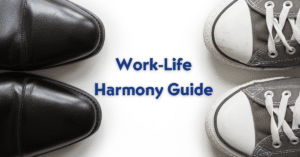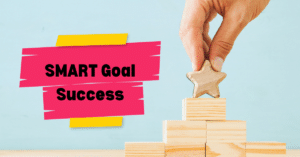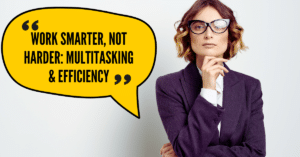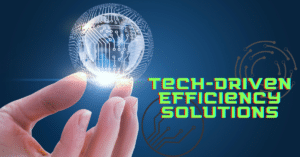In today’s fast-paced and competitive work environment, building effective habits and routines is essential for maximizing efficiency and achieving long-term success. By establishing consistent work habits, individuals can streamline their workflow, stay focused, and make significant strides toward their professional goals. In this post, we will explore a range of habits and routines that foster efficiency and success in the workplace. Whether you’re a seasoned professional looking to optimize your performance or someone just starting their career, incorporating these practices into your daily routine can have a profound impact on your productivity and overall work satisfaction.

The Power of Daily Rituals: How Establishing Consistent Work Habits Can Boost Productivity

Daily rituals have a profound impact on our productivity and overall work performance. By establishing consistent work habits, we tap into the power of routine and create a framework for success. Engaging in rituals like focused planning, task prioritization, and dedicated deep work time enhances productivity, eliminates decision fatigue, and helps us achieve our goals efficiently. Daily rituals provide structure, clarity, and purpose, enabling us to stay on track and accomplish more in less time.
Setting Clear Goals and Objectives: The Key to Building Effective Work Habits
Setting clear goals and objectives is a fundamental step in building effective work habits that lead to success. When we have a clear vision of what we want to accomplish, we can align our actions and prioritize our tasks accordingly. By defining specific and measurable goals, we provide ourselves with a sense of direction and purpose. These goals serve as guiding beacons, helping us make informed decisions about where to focus our time and energy. By integrating goal-setting into our work habits, we cultivate a proactive mindset and create a roadmap for success. With clear goals in place, we are better equipped to stay motivated, track our progress, and make meaningful strides toward our desired outcomes.

Defining SMART Goals: A Framework for Clarity and Achievement

Setting goals that are Specific, Measurable, Achievable, Relevant, and Time-bound (SMART) is a powerful strategy for building effective work habits. When defining SMART goals, it’s essential to be specific about what you want to achieve. Break down your goals into measurable components, allowing you to track progress and stay motivated. Ensure that your goals are realistic and attainable, considering your available resources and constraints. Additionally, make sure your goals are relevant to your overall objectives and align with your values and aspirations. Lastly, set clear deadlines or timeframes for each goal to create a sense of urgency and keep yourself accountable. By using the SMART framework, you establish a solid foundation for clarity, focus, and achievement in your work.
Breaking Down Goals into Actionable Steps: Creating a Roadmap for Success
Once you have defined your goals, breaking them down into actionable steps is crucial for building effective work habits. Start by identifying the key milestones or tasks that need to be completed to achieve your goals. Then, create a list of actionable steps that will lead you toward each milestone. Break down complex tasks into smaller, manageable sub-tasks that you can tackle one at a time. Prioritize the steps based on their importance and urgency, ensuring that you allocate your time and resources efficiently. By breaking down goals into actionable steps, you create a clear roadmap that guides your daily activities and keeps you on track toward achieving your desired outcomes.
Aligning Goals with Personal Values: Enhancing Motivation and Work Satisfaction
Aligning your goals with your values is a vital aspect of building effective work habits. Take some time to reflect on your values, beliefs, and what truly matters to you in your professional life. Consider how your goals can align with these values and contribute to your overall sense of fulfillment. When your goals are in harmony with your values, you will naturally feel more motivated and engaged in the work you do. Moreover, aligning your goals with your values provides a sense of purpose and meaning, fueling your drive to succeed. Regularly reassess your goals to ensure they continue to align with your evolving values and aspirations. By integrating your values into your goal-setting process, you create a powerful source of motivation that propels you toward success.
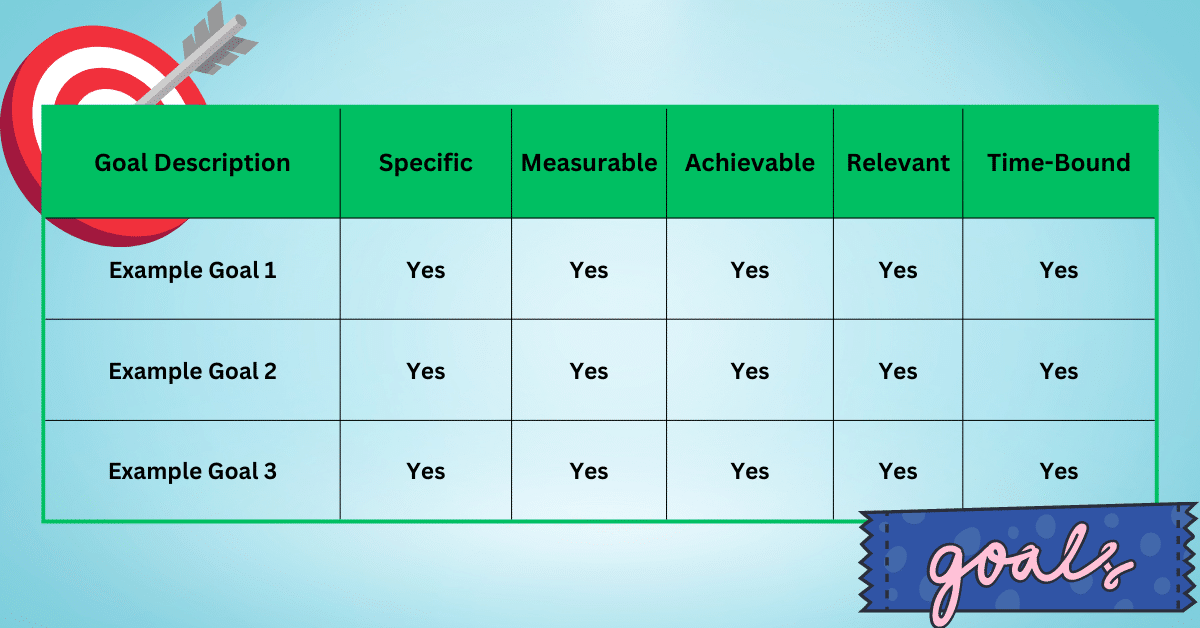
Self-Care for Optimal Performance: Incorporating Health and Wellness into Your Work Habits
Self-care is a crucial component of building effective work habits and achieving optimal performance. Incorporating health and wellness practices into our daily work routines significantly impacts productivity, focus, and overall well-being. Taking care of our physical and mental health sustains energy, motivation, and enables us to bring our best selves to work. Prioritizing regular exercise, mindfulness, stress management, and rest empowers us to thrive in a demanding work environment. By integrating self-care into our work habits, we establish a solid foundation for long-term success and satisfaction in all aspects of life.

Continuous Learning and Skill Development: Habits to Stay Ahead in a Competitive Work Environment
Continuous learning and skill development are essential habits for staying ahead in today’s competitive work environment. In an ever-evolving professional landscape, acquiring new knowledge and honing our skills is key to remaining relevant and adaptable. Cultivating a mindset of lifelong learning involves actively seeking growth opportunities, such as attending workshops, taking online courses, or engaging in professional development activities. By consistently expanding our skill set, we not only enhance our expertise but also demonstrate our commitment to personal and professional growth. Additionally, staying abreast of industry trends and advancements enables us to contribute fresh ideas and innovative solutions to our work. Developing continuous learning as a habit equips us with the tools and knowledge needed to navigate challenges, seize opportunities, and excel in a rapidly changing work environment.

Embracing Lifelong Learning: Strategies to Foster a Growth Mindset
Embracing the habit of lifelong learning empowers professionals to stay ahead in a competitive work environment by fostering a growth mindset. To cultivate a growth mindset, it’s important to adopt strategies that promote continuous learning and personal development. Actively seek out opportunities to expand your knowledge and skills, whether through attending industry conferences, participating in webinars, or reading books and articles related to your field. Embrace challenges as opportunities for growth and view failures as valuable learning experiences. Practice self-reflection and seek feedback to identify areas for improvement and further development. By maintaining a mindset of curiosity and a willingness to learn, you will position yourself as a proactive and adaptable professional in the face of ever-changing demands.

Identifying Key Skill Gaps: Assessing and Prioritizing Learning Opportunities
To stay ahead in a competitive work environment, it’s essential to identify and address key skill gaps through a systematic approach. Begin by conducting a self-assessment to evaluate your current skill set and identify areas for improvement. This could involve reviewing job descriptions, seeking feedback from supervisors or colleagues, or conducting a skills gap analysis. Once you have identified the skills you need to develop, prioritize them based on their relevance and potential impact on your career growth. Set specific goals for skill development and create a roadmap for acquiring those skills. Consider a variety of learning opportunities, such as online courses, mentorship programs, or on-the-job training. By taking a proactive approach to identifying and addressing skill gaps, you can ensure that your continuous learning efforts are targeted and aligned with your professional aspirations.
Embracing Mindfulness: Cultivating Mental Clarity and Emotional Resilience for Work Success
Embracing mindfulness is a transformative habit that can greatly contribute to work success by cultivating mental clarity and emotional resilience. Mindfulness involves intentionally focusing on the present moment, observing thoughts and emotions without judgment. By incorporating mindfulness into our work habits, we improve focus, decision-making, and stress management. It heightens awareness of our thoughts and reactions, enabling composed and resilient responses to work challenges. Regular mindfulness exercises like meditation and deep breathing cultivate calm, balance, and overall well-being. Embracing mindfulness empowers us to navigate work demands with clarity, emotional intelligence, and success.
Conclusion

Building effective work habits is the foundation for achieving efficiency and success in the workplace. This post has delved into various habits and routines that can be implemented to enhance productivity and optimize performance. Establishing daily rituals, setting clear goals, managing distractions, and practicing self-care empower individuals to create structure, make consistent progress, and unlock their full potential. By integrating these strategies into routines, professionals maintain work-life balance and navigate career demands more easily. Building effective work habits requires dedication and perseverance, but the rewards in increased efficiency and personal fulfillment are undoubtedly worth it.



